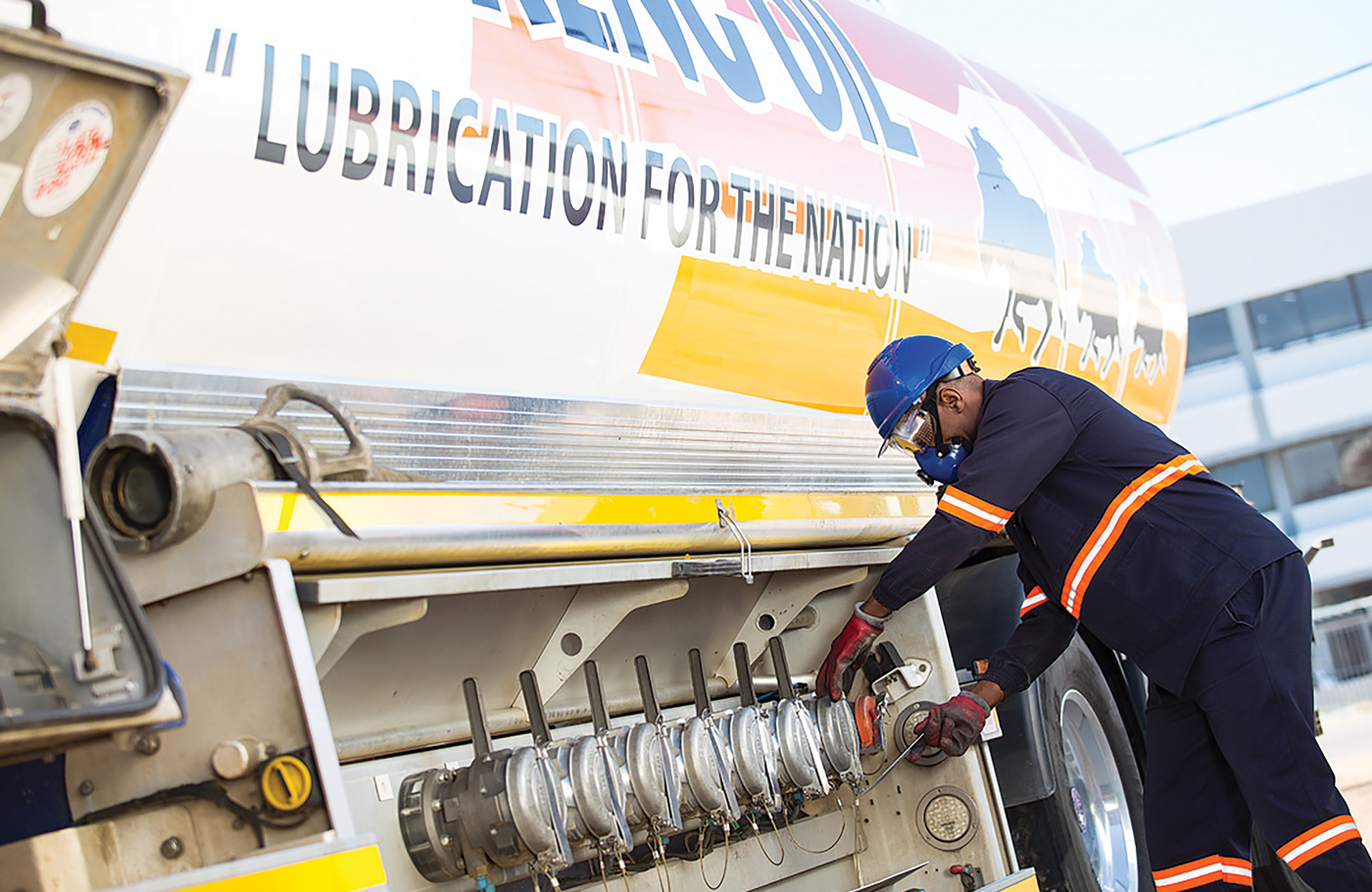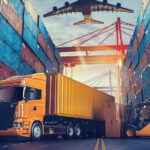Cross-border backup
Cross-border backup
The Covid-19 pandemic has thrown many a spanner in the cross-border works. While it would seem that a level of normality is returning, operators that traverse borders still face ample headaches. All hope isn’t lost, however, as there are those that offer cross-border backup.
First up is Kwa Nokeng Oil, a citizen-owned fuel distribution company in Botswana. “We have 11 petroleum depots throughout the country, which operate 24/7. They provide fuel mostly to in-transit commercial traffic travelling from the copper belt in the Congo and Zambia down to the ports of Durban, Richards Bay, and Walvis Bay – with mainly copper, cobalt, and sulphur loads,” explains Clinton van Vuuren, Kwa Nokeng Oil’s owner and founder. “Essentially, our depots are located at all of Botswana’s international border posts.”
The company has been operating since 2005, building its first depot in Martin’s Drift and then expanding. “We’re rolling out another three depots during this financial year at various locations in Botswana,” says Van Vuuren, adding that Kwa Nokeng Oil distributes between 130 to 140 million litres of fuel per annum: “About 85% of our revenue is from foreign transport companies traversing through Botswana and collecting fuel from us.”
Van Vuuren explains that Botswana’s fuel is really attractive to transport operators. “Botswana is a hotspot for fuel because its fuel taxation is, by far, the least in the SADC region. Therefore, transport companies that are in transit through Botswana take advantage of the fact that they can get cheaper fuel here.
“A point of interest is that our largest and newest depot is at the Kazungula border post, which is the point where Namibia, Zimbabwe, Zambia, and Botswana meet. With the establishment of the new Kazungula bridge, we really believe that the Botswana route is going to become the preferred route to enter South Africa from the North.”
The company also has a wonderful platform that allows its customers to order fuel online, selecting the amount of fuel they will require from which depot. The order is uploaded to a tag on the vehicle. Once the driver arrives, the attendant can complete the transaction via a smart device, which is used to scan the tag and connect to the fuel pump. Through this device, the amount of fuel is authorised and a picture is taken of the vehicle, while the ODO-reading and signatures for the supervisor, attendant, and driver are also captured. The invoice will then be printed at the site and automatically sent via email.

Despite all of these developments and innovations, Kwa Nokeng Oil isn’t really known as a fuel provider to its foreign customers. “We are more of a logistical partner first, and a fuel supplier second,” Van Vuuren points out. “We’ve got a series of roadside assistance vehicles that traverse along Botswana’s North to South corridor, as well as along the Western corridor heading to Namibia.
“These vehicles will basically patrol all of the national highways on a daily basis, each carrying a qualified diesel mechanic. If we get to a Zambian, Congolese, or South African customer whose truck is broken down on the side of the road, we will safeguard the site and then do any mechanical work needed on that vehicle.”
Van Vuuren adds that Kwa Nokeng Oil doesn’t charge any call-out fee, or for the labour carried out on the vehicle. “Nine times out of 10, it is a small electrical or mechanical issue that we can actually fix on site. It is a real Godsend for our customer base across Africa. Imagine being in your offices in Johannesburg, for example, and you get a phone call from your driver in Pandamatenga saying that the truck won’t start. What do you do?
“You physically have to send a mechanic all the way to see what is wrong, for what is usually is a simple five-minute repair job. So, we have established a service along the route, where we become your logistical arm in-country, taking care of your assets and your drivers.”
The company also provides services taking out permits for its customers’ drivers at the border posts. “We do not charge any commission for cash that we hand over to the driver at the border either, which is also a great saving for our customers,” Van Vuuren highlights.
He is also very optimistic about the future. “We have invested a few hundred million Pula in establishing depots along these corridors. The fact that Botswana has always been arguably the safest in-transit country to reach the ports of Durban and Namibia, in my opinion, means the country is going to become a focal point for the transport and logistics industry. So, we are very bullish and optimistic about the growth of our business in Botswana.”
The second company offering cross-border backup is Askari, a financial technology insurance consultancy, which has concluded an agreement with Hollard Mozambique Insurance to launch its digital strategy targeting cross-border trucking fleets.
Vehicles travelling across the border between South Africa and Mozambique must have third-party motor insurance. The insurance digitisation process, completed in January this year, will help to further eliminate potential fraudulent practices while also improving the user experience for customers.
“Before embarking on this digitisation process, the insurance processes at the border were paper-based and riddled with inefficiencies; for many others they still are,” says Gary Wild, CEO of Askari. “Now the wait for cash to exchange hands and hard copies of policies to be issued is a thing of the past – everything will happen in real-time.
“Maputo is a massive transit point for South African commodities such as chromium and coal. This transition to a digital distribution system represents a major technological jump forward and could not have come at a better time, especially as we expect to see an increase in border traffic as the world continues to emerge from the Covid-19 pandemic,” Wild continues.
The piloting of this digital strategy is the culmination of many years of strategising between Hollard and Askari. The two companies have worked closely to expand Hollard’s network across the continent, now stretching to six countries.
“Hollard Mozambique has always been aggressive in staying at the forefront of creative, client service-driven, technical insurance offerings. Having just acquired international commercial and engineering insurance, Hollard is now Mozambique’s largest insurer by a significant margin. We are delighted to be working with them to fulfil their strategy,” adds Wild.
In addition to its fintech developments, Askari is also a financial sector conduct authority-registered insurance intermediary. Having successfully completed the border digitisation project, the company is already thinking ahead and will be focusing its attention on expanding the technology across a wider range of product lines including online sales, underwriting, credit control, and claims management.
“Our goal is to produce solutions to today’s problems, while also preparing for the future developments which will ensure we are still relevant three to five years from now,” says Wild.
So, it would seem that there is hope for many headache-free years ahead for transport operators traversing African borders, thanks to the presence of these companies that have their backs.
Published by
Focus on Transport
focusmagsa




